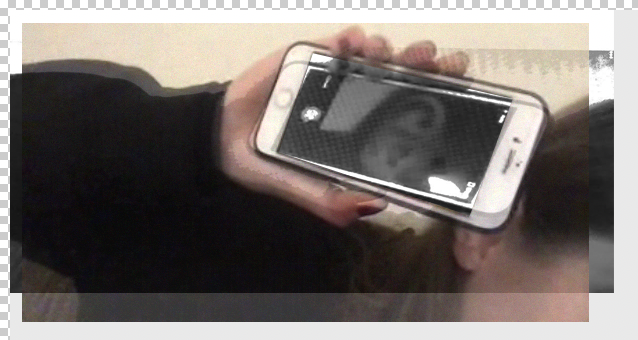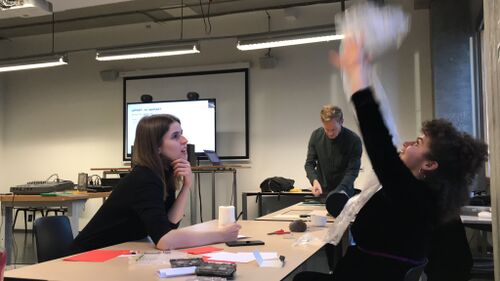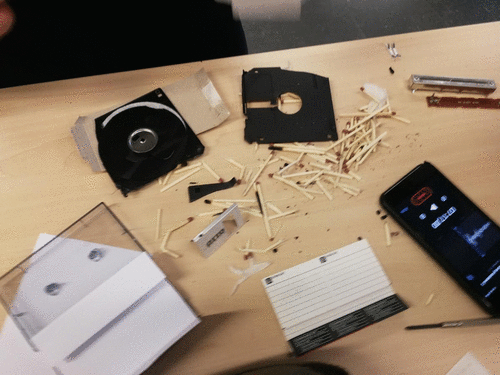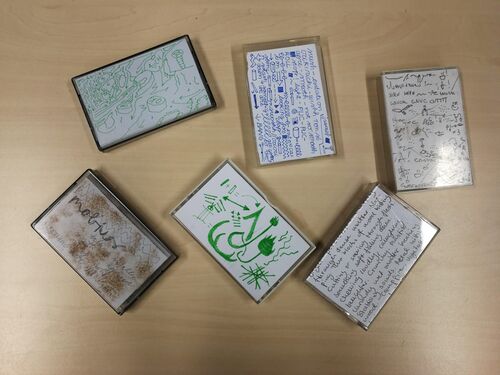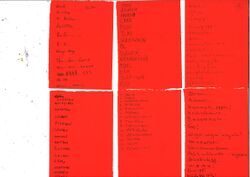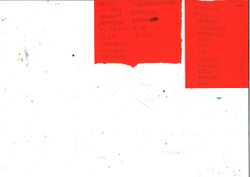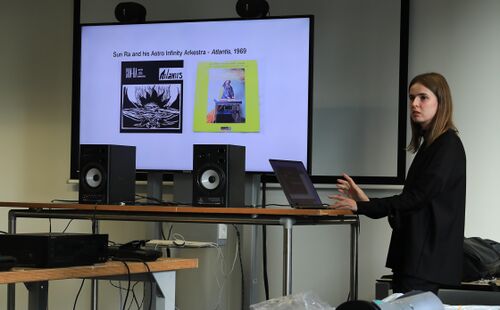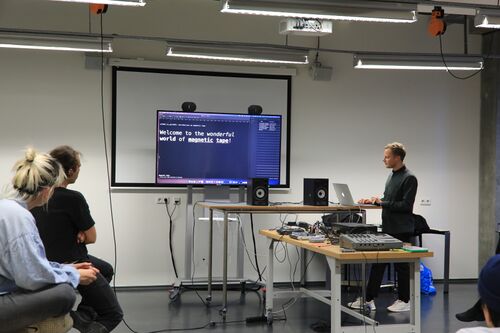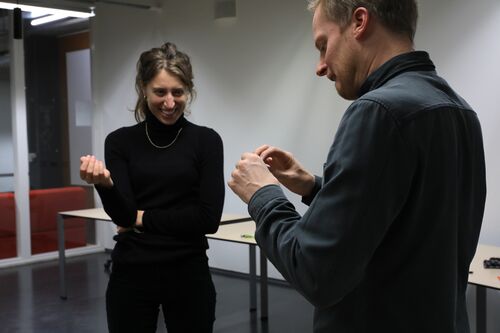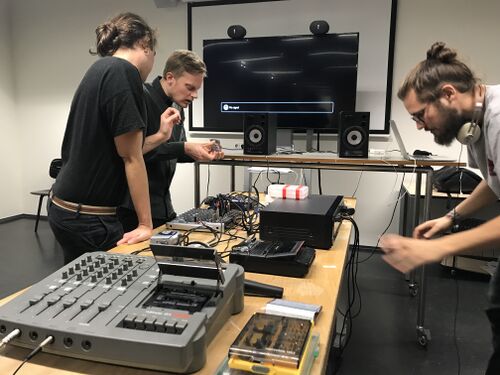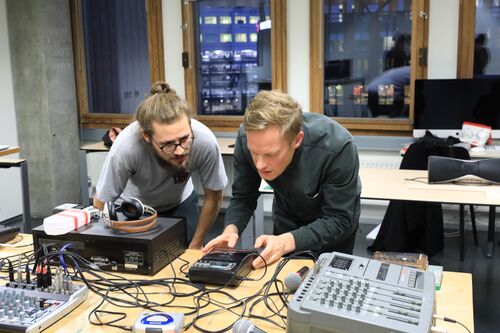A)PART to de(PART
Welcome to the Py.rate.chnic Session:
a)PART_to_de(PART
invitation
Thursday, 19. 11. 2020, 14.00-18.00
XPUB1 & XPUB2 Py.rate.chnic Session
by Ioana, Mark and Tisa.
People that joined: Federico, Camilo, Anna, Clitch, Yu-Chin, Max.
...
What is sonic fiction?
You don't know? We have a slight idea.
Sonic fiction presentation by Ioana: File:Sonic fiction py.rate.chnic.pdf
You will get to know while doing:
- listening
- deconstructing
- making sounds
- recording sounds
- naming
- labeling
- choosing
- articulating
- composing
- performing
#tapeloops #asmr #weirdobjects #tinysounds #diyzine #fiction
Bring to the workshop:
- any kind of an object to deconstruct (completely demolish, it will never be the same)
- a laptop/smartphone (a sound recording device of your choice)
workshop structure
part 1: PREPARATION
- intro: What are we going to do?: 10 min + split into duos/trios
- warm up excercise [Tisa]: ~30min
- sensibility sound and text (materiality notion)
onomatopoetic transcriptions (sound+text)
touching (materiality)
analog asmr
samples+sentences (play+write)
association flows
- intro [Ioana] on decontruction sound and sonic fiction 10-15min
playlist, theory, outcomes sketch
- intro [Mark] on the technicals
part 2: ACCUMULATION/PRODUCTION
- take a picture of the object - set up recording (sound (tape or digital) and video) - deconstruct object & take notes break - listen & choose sound (long continuous sound of proces and sample for short loops) - make tape loops - record sound on tape loops - label sounds (text, also imagery)
part 3: COMPOSITION
- record sound on tape (long continuous and loops) + images encoder + transfer - performs a piece with the material + reconstruction (merging) of the objects
BEERENDBEND BEERND BEEND
We're gpoing to be working with sound - regarding sound as language. Producing sound by deconstructing objects, recording the sound on a material medium (tape). Perform, listen, annotate (naming, linernotes). Referring to the sound (letters, onomatopeia, characterizing the sound).
PLAYING! fun.
The exercises
for focus, asociation flow, sensibility to sound, imagination, narratives, ...
(warm up, led by Tisa)
- Everybody stands up and makes a circle.
- Physical warmup (each person proposes an exercise, all repeat)
- Free movement (closed eyes, moving as you need, making sounds as they come)
- Shaking (shaking different bodyparts and making a relaxed sound)
- Repetition (standing in a circle, one makes a gesture and a sound, the next one repeats it as precisely as possible, and so forth)
- Rhythm (establishing a common rythm, repetition of "rak-pak shalala", passing words)
- Passing (one makes a sound, the next one in the circle responds with a word that describes the sound, next one translates it back to sound, etc.)
- Associations (passing words associations in a circle - also sounds and words in any language, keeping the rhythm)
- Onomatopoetic transcriptions (one makes a sound, everybody repeats the sound, each writes down the sound, 10x)
- Echo exchange (people exchange the papers, vocalizing the written in a repeated manner (loop), while holding their palms in front of their mouth in order to amplify the sound for them)
- Analog asmr (insert index finger into your ear, tap and stratch and play on your hand, listen)
Photos
made by Yu-Ching

